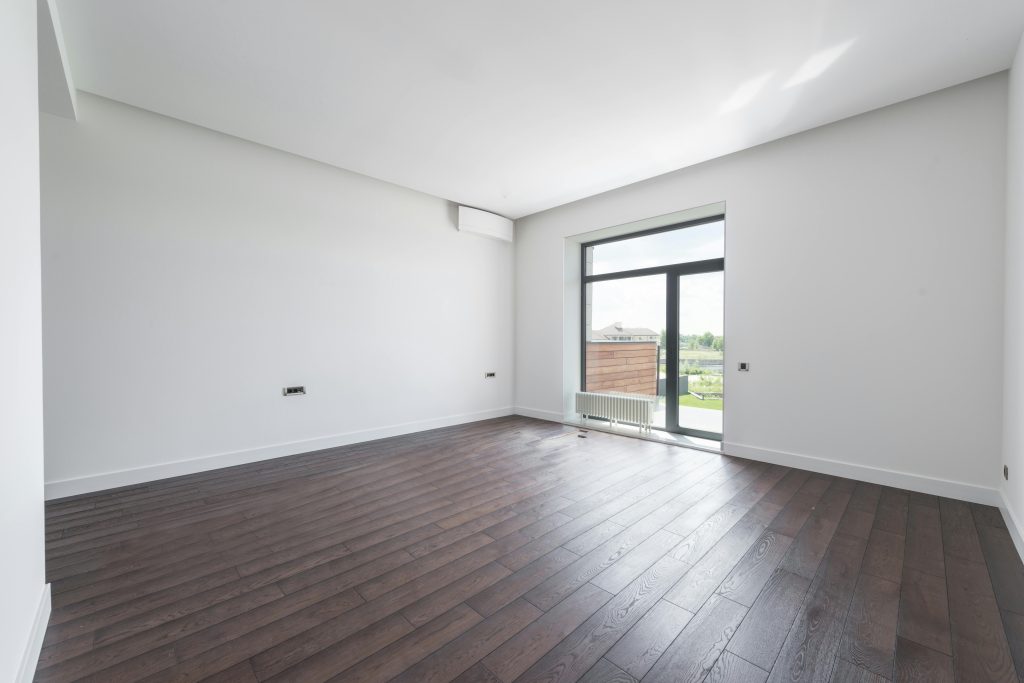Probate’s been granted. You’ve got the legal go-ahead. But when can you actually sell the house?
The short answer: you can start the process right away.
The longer answer? A few factors can slow things down—or stop you in your tracks.
Let’s walk you through the process, highlight the pitfalls, and show you how to speed things up if you’re in a hurry.
What Does Probate Allow You to Do?
Once probate is granted, the executor has the authority to:
- Access the deceased’s assets—including the property.
- Pay off debts—like mortgages or credit cards.
- Distribute the estate—to beneficiaries named in the will (or per intestacy rules if there’s no will).
- Sell or transfer ownership of the property.
In plain terms: you can’t legally sell a house until probate is granted, unless the deceased was a joint tenant, which we’ll cover later.
The grant of probate is your key to unlocking the Land Registry’s approval for a sale.
Apply for probate here on Gov.uk website
How Soon Can a House Be Sold After Probate?
You Can Start the Process Immediately (Legally Speaking)
Once the Grant of Probate is in your hands, you’re free to:
- List the property for sale (if you haven’t already).
- Accept offers.
- Exchange contracts.
- Complete the sale.
Some estate agents let you market the property before probate is granted, but it’ll be listed as “subject to probate.” This means you can’t exchange contracts or complete the sale until the grant is issued. Trying to push ahead without it? You’ll hit a legal brick wall.
Typical Timeline: Probate to Sale Completion
The timeline depends on how you choose to sell:
- Traditional sale (via estate agent): Expect 8–25 weeks after probate is granted. This covers finding a buyer, completing conveyancing, handling any issues, and finalising the sale. Conveyancing alone can take 8–12 weeks, depending on the complexity.
- Cash buyer like Property Rescue: We can complete in as little as just 7 days after probate is granted. You set the timeline. We handle the legal work. No fees. For the best efficiency, we recommend getting in touch with us while probate is underway so we can carry out some legwork and complete the sale within a few days after it’s been granted.
What Can Delay a Sale After Probate Is Granted?
Even with probate sorted, if selling via an estate agent, several issues can still hold things up.
Property-Related Delays
- Poor condition or clutter: A house needing major repairs or clearance can deter buyers or slow negotiations.
- Disputes among beneficiaries: Emotions can run high, and disagreements over the sale can stall progress.
- Unregistered property: If the property isn’t registered with HM Land Registry, you’ll need to register it first, which can take 4–12 weeks.
- Missing title deeds: Usually fixable, but sorting it out can be a hassle and small delay conveyancing.
Legal & Financial Delays
- Inheritance Tax (IHT) complications: HMRC requires IHT to be paid or cleared before probate is fully settled. Delays in tax calculations or payment plans can hold up the process.
- Deed of Variation: If beneficiaries want to change how the estate is distributed, this legal document can take weeks to prepare.
- Disputes or claims: Someone feeling left out might file a claim under the Inheritance (Provision for Family and Dependants) Act 1975, potentially delaying the sale for months.
Environmental and Legal Checks
- Searches and surveys: Buyers’ solicitors will conduct searches (e.g., local authority, flood risk) which can take 2–6 weeks.
- Structural issues: If a survey flags problems like damp or subsidence, buyers may renegotiate or pull out.
These hurdles aren’t always deal-breakers, but they can stretch the timeline—or scare off buyers.
Many of these potential delays do not exist when you sell to Property Rescue because we will buy property in any condition, meaning no tidy-up needed. Since we buy super fast it leaves less time for for disgruntled family members to get other ideas. We can also give you a cash advance so you can settle any IHT bill quickly.
Can You Sell a House Before Probate Is Granted?
The answer’s a cautious “yes, but.”
You Can’t Complete Before Probate
Legally, you can’t transfer ownership until probate is granted. However, you can take steps to prepare:
- Show the property to potential buyers.
- Accept provisional offers.
- Start initial conveyancing work.
The catch? Contracts must state the sale is “subject to probate.” Be upfront with your estate agent and buyers about the timeline to avoid frustration. If probate takes months, impatient buyers might walk away.
Pro Tip: Clear communication is key. Tell buyers where you’re at with probate and give a realistic timeline. Serious buyers will stick around if they’re kept in the loop.
Does the Type of Property Ownership Matter?
Absolutely. The way the property was owned dictates what’s needed to sell.
Sole Ownership
If the deceased owned the property outright in their name, probate is non-negotiable. You’ll need the Grant of Probate to sell or transfer it.
Joint Tenants
If the deceased co-owned the property as a joint tenant, their share automatically passes to the surviving owner via the right of survivorship. No probate is needed, just a death certificate to update the Land Registry. You can sell immediately if you are the surviving owner.
Tenants in Common
If the deceased owned a share of the property (e.g., 50%) as a tenant in common, probate is required to deal with their portion. The executor can only sell that share, or the whole property if all co-owners agree, once the Grant of Probate is issued.
If you’ve inherited a portion of a ‘Tenants in Common’ property where there is another co-owner, then read this article about selling when one co-owner refuses.
Leasehold Properties: Additional Considerations
If the property is leasehold, extra steps apply:
- Lease terms: Buyers will want to know the remaining lease length (short leases, under 80 years, can deter buyers).
- Ground rent and service charges: Outstanding fees must be settled or disclosed.
- Freeholder consent: Some leases require the freeholder’s approval for a sale, which can add weeks.
Check the lease early to avoid surprises. A conveyancing solicitor can help navigate this.
Dealing with Tenanted Properties
If the property is occupied by tenants, you have three options:
- Eviction: Based on the new laws that are part of the Renters’ Rights Act, this is a large topic, so please read this article to get a full understanding.
- Negotiate with tenants: Some tenants may agree to leave early for financial compensation.
- Sell with tenants in situ: Investors may buy tenanted properties, but this can lower the sale price. More about how the price can be affected by tenants here in this article.
Work with a solicitor to ensure compliance with tenancy laws.
How to Speed Up the Sale After Probate
Need to move fast? Here’s how to streamline the process.
1. Get the House Ready Early
Even before probate is granted, you can:
- Clear out personal belongings.
- Spruce up the garden.
- Fix minor issues (leaky taps, peeling paint).
- Arrange professional photos.
A tidy, empty house sells quicker. Fact.
2. Have Paperwork in Order
Get these sorted:
- Title documents (check with HM Land Registry).
- Ownership status (freehold or leasehold).
- Settled bills (council tax, utilities, insurance).
- Connected utilities for viewings.
For unregistered properties, start the registration process now—it can take 4–12 weeks.
3. Order Multiple Probate Copies
You’ll need original Grant of Probate copies for banks, solicitors, and HM Land Registry. Order extras upfront (£7 each) to avoid delays.
4. Sell to a Cash Buyer Like Us
Here’s where we shine:
- No listings. No repairs.
- Guaranteed cash offer within 48 hours
- We buy as-is: untidy, trashed, or tenanted.
- We cover your legal costs.
- Sale completion in days, not months.
If speed and certainty are your priorities, we’re your shortcut.
Do You Pay Capital Gains Tax (CGT) When Selling After Probate?
This catches many executors by surprise.
- CGT applies if the property’s market value has risen between the date of death and the sale.
- Your baseline is the probate valuation (market value at date of death).
- You pay CGT only on the gain above that figure, not the full sale proceeds.
Example:
• Probate value: £300,000
• Sale price: £330,000
• Gain: £30,000
You then deduct:
- Allowable disposal costs (e.g., solicitor’s and estate‑agent’s fees)
- The £3,000 annual exempt amount (for 2024–25)
CGT rate for executors (personal representatives): 24% on the net gain
CGT Allowances (2024/25)
- £3,000 tax-free allowance for individuals.
- £1,500 tax-free allowance for most trusts, or £3,000 for trusts for disabled persons.
- Selling quickly after probate reduces the chance of a gain, thus reducing or eliminating CGT liability.
- Tip: If the estate is complex (e.g., multiple assets, significant gains, or tenanted properties), consult a tax advisor to ensure compliance and optimise deductions.
Can You Sell If One Executor Refuses?
No. All executors must agree.
All Executors Must Act Together
If the will names multiple executors, they all have equal authority and must:
- Sign the sale contract.
- Agree on key decisions (e.g., sale price, offers).
What If One Won’t Cooperate?
Try these:
- Persuasion: Compromise or mediation can resolve disputes quickly.
- Renunciation: The executor can step down formally via a legal document.
- Court action: Apply to remove an executor under Section 50 of the Administration of Justice Act 1985. This is costly and slow, so use it as a last resort.
If beneficiaries are under 18, two executors must act by law. Seek legal advice early if you’re stuck.
How Property Rescue Can Help You Sell Quickly After Probate
Probate sales can drag on. Chains collapse. Disputes flare up. And if you need cash to settle debts or divide the estate, the stress piles up fast.
That’s where we come in.
At Property Rescue, we specialise in fast, hassle-free probate sales, whether probate’s granted or not. Here’s how we help:
- We handle the legal work: Our specialist solicitors manage all paperwork at no cost to you.
- Cash offer in 24 hours: A firm, no-obligation offer based on your property and goals.
- Completion in as little as 7-days: Once probate’s granted, we can close in days, or on your timeline.
- We cover all fees: No solicitor costs, no estate agent fees, no listing expenses.
- We buy any property in any condition.
Ready to skip the stress? Get your offer at Property Rescue.









